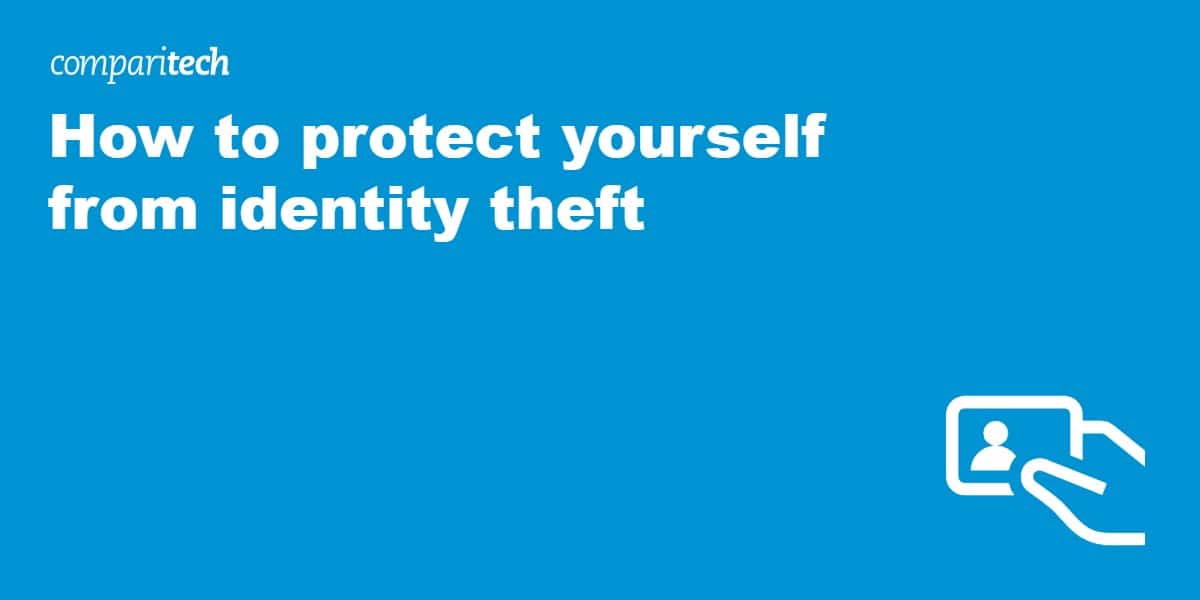
Identity thieves use a varied array of methods to get their hands on your personal information. To prevent identity theft, follow these simple guidelines:
Protect your online privacy
The internet has become the primary target of modern day identity thieves. While you can’t stop a data breach at a bank or retailer that affects thousands of customers, you can take a few steps to beef up your individual online security to keep thieves at bay. Whenever you input personal information into a form online, always check that the web page is encrypted with HTTPS and has an authorized certificate. The “https” will prepend the URL of the site shown at the top of your browser. Invest in other protections as well, such as an antivirus and a VPN. These prevent viruses and snoops from monitoring and collecting your activity. To help you out, we made a big list of free tools you can use to protect your privacy.
Avoid phishing scams
Ignore any unsolicited requests for your personal information, whether they come by mail, email, or some other medium. These scams will attempt to lure you in with some sort of promotional offer, or attempt to scare you into giving up information by telling you that your assets are at risk. Remember that reputable companies will never ask you for your social security number, card numbers, or other personal info over the phone or by mail.
Guard your social security number
Don’t carry around your social security card or any documents containing your social security number. The same goes for your National Insurance number if you’re a UK citizen and social insurance number for Canadians. Keep it and other vital documents locked and hidden somewhere safe. Don’t give out your number unless absolutely necessary and you 100 percent trust in the entity receiving it. Your social security/national insurance/social insurance number is the most critical piece of private information you have, so guard it well.
Monitor your accounts for unauthorized transactions
Compare receipts with your account statements to make sure everything matches. If you use online banking, check your account activity often for unauthorized or fraudulent purchases, withdrawals, and transfers. Pay close attention to billing cycles as well. If your credit card bill arrives late, for instance, a thief could have changed your address without your knowledge, then forwarded you the bill after tampering with it. If a bill is late, contact the original sender to inquire about why.
Shred mail and paperwork with identifying information
Don’t throw paperwork, bills, and mail with your information in it into the trash without first shredding or otherwise destroying it. Dumpster diving is a classic tactic used by identity thieves to steal info. While we’re at it, make sure to collect your mail promptly and don’t let it sit in your mailbox for a long period of time. Have a trusted neighbor collect your mail on your behalf if you leave for an extended period of time to prevent thieves rifling through your mailbox.
Create strong passwords
“123456” and “password” don’t cut it when it comes to online passwords. The longer the password, the better. Include numbers and symbols as well to prevent computer programs from brute forcing your account–essentially guessing every possible combination until the correct string of characters is correct. Don’t use the same passwords for every website. Consider using a password manager app so you can make passwords unique without having to memorize them. Read more about creating strong passwords in our guide.
Be wary of shoulder surfers and skimmers
Whenever you use an ATM or keypad at a cash register, keep an eye out for people who try to sneak a peek at your PIN. Cover the keypad with your other hand. Be wary of skimmers: devices that scan your card’s magnetic strip. Skimmers can be fixed onto ATMs to make it look as though they are part of the original machine, or used by store clerks and waiters to swipe your card a second time when you’re not looking. If possible, upgrade to bank and credit cards with chips instead of just magnetic strips.
Order your credit report once per year
Under US law, citizens are entitled to one free credit report per year from each of the national credit bureaus. Check these reports for any accounts you did not open and other discrepancies. Once your credit has been tarnished, it can be very difficult to mend it.
UK citizens don’t get free credit reports, but credit reporting agencies often offer free trials that you can avail of or only require you pay postage to receive a hard copy.
Canadians can get their credit reports free in the mail, but the process takes two to three weeks. If you want instant online access, that will cost extra.
Invest in identity theft protection
Several companies offer subscription services that will monitor your accounts, help restore your identity, and provide insurance to compensate for damages as a result of identity theft. Learn more about identity theft protection and read our reviews of these services on Comparitech. Most of our reviews are for US-only providers now as this is where commercial identity theft protection is most popular, but we hope to add more international options in the future. US citizens can checkout or list of the best identity theft protection services here.

May 29, 2018 My Wallet andmy driver license gas stolen